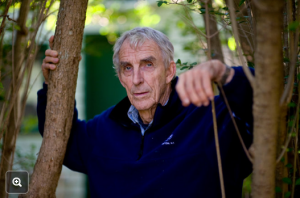One of the themes I write about is that our vision of our future self – what we aspire to “become” over time – can affect our mental health, positively or negatively. I’ve described how the absence of a positive vision of your future can actually create depression over time. In our society it’s easy to become encased within oneself; too self-absorbed and disconnected from our interconnections with others that are part of reality of life, today. Some recent research illustrates that how we experience ourselves in the larger world impact on tendency towards anxiety and depression. Moreover, it affects how we relate to other people.
A good empirical confirmation of this comes from research from the UC Berkeley and UC Irvine. It found that people who experience a sense of awe – a sensation of being part of something much larger than themselves – prompts them to behave more benevolently, in a more giving manner, towards others. I think what happens, there, is that the awe-struck experience pulls you outside of yourself. It propels you into an experience of “forgetting yourself.” And that expanded awareness that your are part of, and interwoven with, something much larger than just your individual being carries over towards behaving more positively and generous towards others.
Participants in the research, published in the Journal of Personality and Social Psychology, consistently reported that awe produced “a reduced sense of self importance relative to something larger and more powerful that they felt connected to,” according to the lead researcher, Paul Piff. Subsequent analysis of the research data confirmed that this feeling of the “small self” was responsible for the increase of ethical, generous behavior they subsequently demonstrated in the study.
In a different but related way, a study of the impact of a sense of meaning and purpose upon one’s mental health found a strong connection. The research, published in the Journal of Social Service Research, found that people who create a sense of purpose and meaning in their lives, and seek to find and experience their “true self,” experience fewer symptoms of depression and anxiety. This study looked at role of having a sense of meaning and purpose in treatment programs for addiction, in particular. It found that, in that population, more symptoms of emotional disorders were found among those who lacked a sense of meaning in their lives. However, I think that it has implications for the population at large, and corroborates the larger theme that I described above about the value of learning to “forget yourself.”
Credit: Spirit Science and Metaphysics








